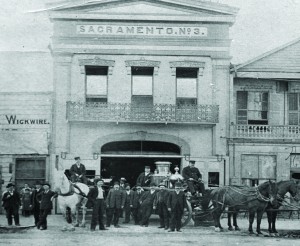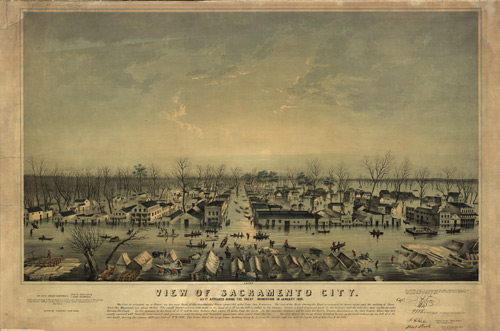Sacramento – Fun Facts!

Growing up in Sacramento, you learn a lot about the city’s vibrant (and sometimes volatile) history. The other day I started thinking, “I bet there’s more cool stuff about my city that I haven’t heard before”. So today, I sat down at my computer and searched for some Fun Facts – Let’s just say, I wasn’t disappointed!
The internet offered A TON of interesting information about The City of Trees, but here are just a few from softschools.com:
| Sacramento is located where the American River and Sacramento River converge. |
| Sacramento covers an area of 100.105 square miles. |
| Sacramento was not the first capital of California. There were five others,including Monterey, San Jose, Vellejo, Benicia, and San Francisco. Sacramento was the capital by 1862, but a fire destroyed the capital building and for a brief period the capital was temporarily San Francisco. |
| The Pony Express that stretched from Sacramento to Missouri originated in Sacramento in 1860. |
| Sacramento has had several nicknames over the years including Sactown, the Big Tomato, River City, City of Trees, and Camellia Capital of the World. |
| Sacramento’s Discovery Park is submerged in the winter to help control flooding. |
| In Old Sacramento tourists can ride paddle steamers and steam-hauled trains. |
| In Old Sacramento, the streets are cobblestone and there are many buildings dating back to the 1850s and 1860s. |
| Sacramento is home to the California State Railroad Museum, which houses 21 restored locomotives. |
| The only city in the world with more trees than Sacramento is Paris, France. |
| Despite being an inland city, Sacramento has a thriving port, accessible via the San Joaquin Delta River and Sacramento River. |
| There is a large tunnel network under the city of Sacramento, but it became evident that the city would have to be raised to deal with flooding, and the tunnels were abandoned. |
| Sacramento is home to the art museum The Crocker, which is the oldest art museum in the western U.S. |
| Sacramento Zoo was founded in 1927. School and other groups can have a sleep over in the zoo to experience nature and the zoo at night. |
| The biggest almond processing plant in the world is located in Sacramento. It is the Blue Diamond plant, which processes as many as 12 million pounds a day during harvest. |
| The climate in Sacramento is Mediterranean, with mild temperatures and lots of sun. |
| There are many attractions in Sacramento that can be enjoyed without paying a fee including museums on Free Museum Day, Jelly Belly Factory, Second Saturday Art Walk, American River Bike Trail, and Folsom Lake, which is a recreational area with 75 miles of shoreline. |
| Sacramento is home to California’s largest ‘Certified Farmers Market’. There are at least 50 farmers markets in the city thanks to the climate and ability to grow produce with high yields. |
